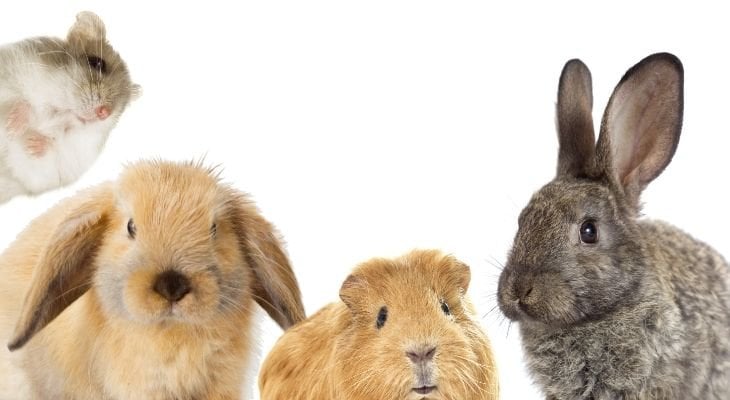
You’ve heard of a pocket watch, but what about a pocket pet? That’s right, a pocket pet is a small, furry little pet that can fit straight in your pocket! The pets that fall into this category are animals like rats, hamsters, hedgehogs, gerbils, and their slighter larger counterparts such as chinchillas, or guinea pigs. While these pets may not require daily walks or get excited about belly rubs, they’re still fun and unique animals.
Before you decide to go out and purchase a pocket pet, it’s important that you know what type of living arrangement it needs, what it eats, if it needs exercise, and what type of veterinary care may be necessary. Each of the tiny pets listed above should be cared for just as traditional pets. To learn more about each of these pocket pets, read the articles below.
-
Assistance Dogs Offer Many Benefits
Assistance dogs are not just for blind or visually impaired people. Today, these dogs help people with a range of conditions enjoy full lives. Guide Dogs Guide dogs, also known as Seeing Eye dogs, help blind and visually impaired people live independent lives. These dogs "see" for their owners and
Read more -
Can Pets Sense Pregnancy?
Your pets probably don't understand that in nine months a new baby will be joining your family, but dogs and cats do detect differences in mood, posture, behavior, and body chemistry that clue them that an enormous change is happening. Your dog or cat will pick up other signs, too: Our four legged
Read more -
Creating A Pet Friendly Yard
Yard Plants Can Be Toxic "A few usual plants you might never think to suspect are baby's breath (for dogs and cats), elephant ears (for dogs and cats), and grapefruit (toxic to dogs, cats and horses)," says Caitlin Williams in Pets and Backyard Poisons. Jenna Trethewey, a care
Read more -
Does Your Bird Need a Blankie?
The answer to that is …it depends on the situation. Some birds prefer to remain uncovered during bedtime; where as other birds cannot sleep without their "security blankets". On average, birds need about 12 hours of good, quality sleep each night to remain in peak condition. Much like
Read more
- 1
- 2
- 3
- 4
- 5
- 6
- 7
- 8
- 9
- 10
- 11
- 12
- 13
- 14
- 15
- 16
- 17
- 18
- 19
- 20
- 21
- 22
- 23
- 24
- 25
- 26
- 27
- 28
- 29
- 30
- 31
- 32
- 33
- 34
- 35
- 36
- 37
- 38
- 39
- 40
- 41
- 42
- 43
- 44
- 45
- 46
- 47
- 48
- 49
- 50
- 51
- 52
- 53
- 54
- 55
- 56
- 57
- 58
- 59
- 60
- 61
- 62
- 63
- 64
- 65
- 66
- 67
- 68
- 69
- 70
- 71
- 72
- 73
- 74
- 75
- 76
- 77
- 78
- 79
- 80
- 81
- 82
- 83
- 84
- 85
- 86
- 87
- 88
- 89
- 90
- 91
- 92
- 93
- 94
- 95
- 96
- 97
- 98
- 99
- 100
- 101
- 102
- 103
- 104
- 105
- 106
- 107
- 108
- 109
- 110
- 111
- 112
- 113
- 114
- 115
- 116
- 117
- 118
- 119
- 120
- 121
- 122
- 123
- 124
- 125
- 126
- 127
- 128
- 129
